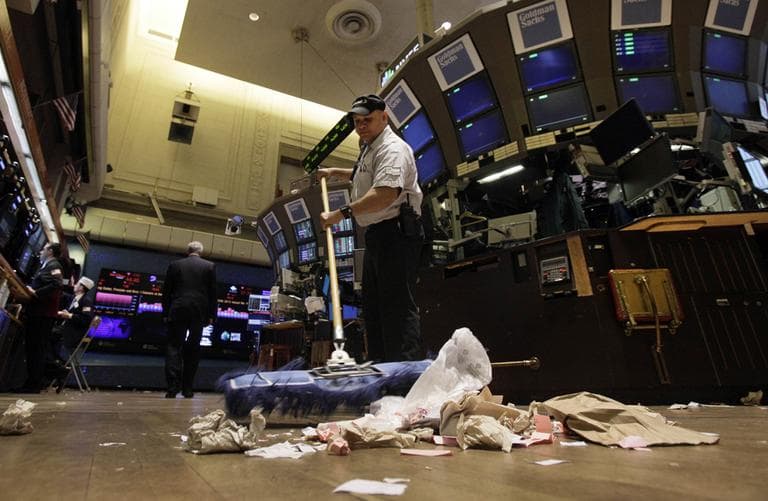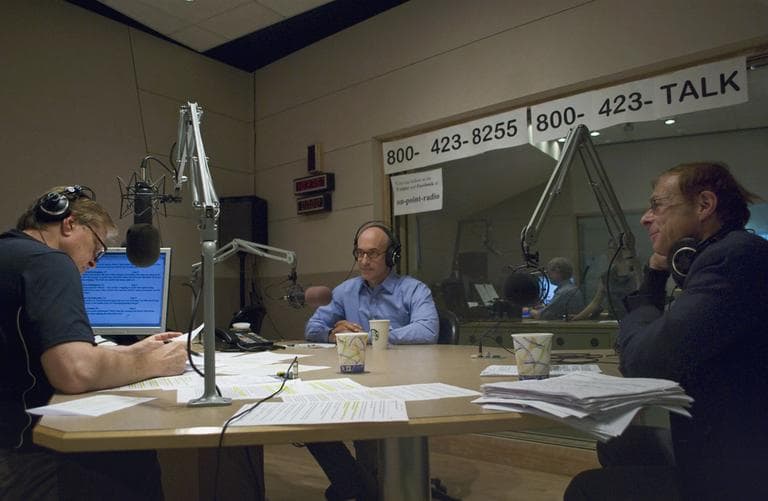Advertisement
A Global Economic Stall?
ResumeFear of stall-out in the world economy. We’ll look at what comes next.

It seemed again like maybe we were finally getting economic traction. A slow but steady lift-off. More jobs. More hope. Despite Europe. Despite everything. Then came Friday. The jobs report – a bust. The Dow, down 275 points and the market into red for the year. China’s outlook, sagging. India’s sagging. And Europe’s not-so-slow-motion meltdown, positively terrifying.
This is no one’s happy rebound. Far from it. Investors are scrambling for shelter. And if you’ve been out of work, watch out.
This hour, On Point: Fear of a new stall-out in the world economy. We’re trying to look ahead.
-Tom Ashbrook
Guests
Allen Sinai, chief global economist at Decision Economics.
Ken Rogoff, professor of public policy and economics at Harvard University. He's the author of a new book, This Time is Different: Eight Centuries of Financial Folly.
From Tom's Reading List
CNBC "June is picking up right where May left off — with a string bad economic news that is among the worst the market has ever seen."
Wall Street Journal "Germany is sending strong signals that it would eventually be willing to lift its objections to ideas such as common euro-zone bonds or mutual support for European banks if other European governments were to agree to transfer further powers to Europe."
Project Syndicate "The European Union is a voluntary quasi-federation of sovereign and democratic states in which elections matter and each country seeks to determine its own destiny, regardless of the wishes of its partners. But it should now be apparent to everyone that the eurozone was designed with a very different institutional arrangement in mind. Indeed, that design gap has turned out to be a major source of the monetary union’s current crisis."
Photo: Rogoff and Sinai in Studio

This program aired on June 5, 2012.